Chris Hedges
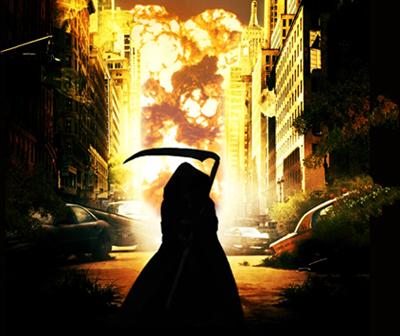 We will have to resist the temptation to fold in on ourselves and to ignore the cruelty outside our door.
Aleksandr Herzen, speaking a century ago to a group of anarchists about how to overthrow the czar, reminded his listeners that it was not their job to save a dying system but to replace it: “We think we are the doctors. We are the disease.” All resistance must recognize that the body politic and global capitalism are dead. We should stop wasting energy trying to reform or appeal to it. This does not mean the end of resistance, but it does mean very different forms of resistance. It means turning our energies toward building sustainable communities to weather the coming crisis, since we will be unable to survive and resist without a cooperative effort.
We will have to resist the temptation to fold in on ourselves and to ignore the cruelty outside our door.
Aleksandr Herzen, speaking a century ago to a group of anarchists about how to overthrow the czar, reminded his listeners that it was not their job to save a dying system but to replace it: “We think we are the doctors. We are the disease.” All resistance must recognize that the body politic and global capitalism are dead. We should stop wasting energy trying to reform or appeal to it. This does not mean the end of resistance, but it does mean very different forms of resistance. It means turning our energies toward building sustainable communities to weather the coming crisis, since we will be unable to survive and resist without a cooperative effort.
These communities, if they retreat into a pure survivalist mode without linking themselves to the concentric circles of the wider community, the state and the planet, will become as morally and spiritually bankrupt as the corporate forces arrayed against us. All infrastructures we build, like the monasteries in the Middle Ages, should seek to keep alive the intellectual and artistic traditions that make a civil society, humanism and the common good possible. Access to parcels of agricultural land will be paramount. We will have to grasp, as the medieval monks did, that we cannot alter the larger culture around us, at least in the short term, but we may be able to retain the moral codes and culture for generations beyond ours. Resistance will be reduced to small, often imperceptible acts of defiance, as those who retained their integrity discovered in the long night of 20th-century fascism and communism.
We stand on the cusp of one of the bleakest periods in human history when the bright lights of a civilization blink out and we will descend for decades, if not centuries, into barbarity. The elites have successfully convinced us that we no longer have the capacity to understand the revealed truths presented before us or to fight back against the chaos caused by economic and environmental catastrophe. As long as the mass of bewildered and frightened people, fed images that permit them to perpetually hallucinate, exist in this state of barbarism, they may periodically strike out with a blind fury against increased state repression, widespread poverty and food shortages. But they will lack the ability and self-confidence to challenge in big and small ways the structures of control. The fantasy of widespread popular revolts and mass movements breaking the hegemony of the corporate state is just that – a fantasy.
My analysis comes close to the analysis of many anarchists. But there is a crucial difference. The anarchists do not understand the nature of violence. They grasp the extent of the rot in our cultural and political institutions, they know they must sever the tentacles of consumerism, but they naïvely believe that it can be countered with physical forms of resistance and acts of violence. There are debates within the anarchist movement – such as those on the destruction of property – but once you start using plastic explosives, innocent people get killed. And when anarchic violence begins to disrupt the mechanisms of governance, the power elite will use these acts, however minor, as an excuse to employ disproportionate and ruthless amounts of force against real and suspected agitators, only fueling the rage of the dispossessed.
I am not a pacifist. I know there are times, and even concede that this may eventually be one of them, when human beings are forced to respond to mounting repression with violence. I was in Sarajevo during the war in Bosnia. We knew precisely what the Serbian forces ringing the city would do to us if they broke through the defenses and trench system around the besieged city. We had the examples of the Drina Valley or the city of Vukovar, where about a third of the Muslim inhabitants had been killed and the rest herded into refugee or displacement camps. There are times when the only choice left is to pick up a weapon to defend your family, neighborhood and city. But those who proved most adept at defending Sarajevo invariably came from the criminal class. When they were not shooting at Serbian soldiers they were looting the apartments of ethnic Serbs in Sarajevo and often executing them, as well as terrorizing their fellow Muslims. When you ingest the poison of violence, even in a just cause, it corrupts, deforms and perverts you. Violence is a drug, indeed it is the most potent narcotic known to humankind. Those most addicted to violence are those who have access to weapons and a penchant for force. And these killers rise to the surface of any armed movement and contaminate it with the intoxicating and seductive power that comes with the ability to destroy. I have seen it in war after war. When you go down that road you end up pitting your monsters against their monsters. And the sensitive, the humane and the gentle, those who have a propensity to nurture and protect life, are marginalized and often killed. The romantic vision of war and violence is as prevalent among anarchists and the hard left as it is in the mainstream culture. Those who resist with force will not defeat the corporate state or sustain the cultural values that must be sustained if we are to have a future worth living. >From my many years as a war correspondent in El Salvador, Guatemala, Gaza and Bosnia, I have seen that armed resistance movements are always mutations of the violence that spawned them. I am not naïve enough to think I could have avoided these armed movements had I been a landless Salvadoran or Guatemalan peasant, a Palestinian in Gaza or a Muslim in Sarajevo, but this violent response to repression is and always will be tragic. It must be avoided, although not at the expense of our own survival.
Democracy, a system ideally designed to challenge the status quo, has been corrupted and tamed to slavishly serve the status quo. We have undergone, as John Ralston Saul writes, a coup d’état in slow motion. And the coup is over. They won. We lost. The abject failure of activists to push corporate, industrialized states toward serious environmental reform, to thwart imperial adventurism or to build a humane policy toward the masses of the world’s poor stems from an inability to recognize the new realities of power. The paradigm of power has irrevocably altered and so must the paradigm of resistance alter.
Too many resistance movements continue to buy into the facade of electoral politics, parliaments, constitutions, bills of rights, lobbying and the appearance of a rational economy. The levers of power have become so contaminated that the needs and voices of citizens have become irrelevant. The election of Barack Obama was yet another triumph of propaganda over substance and a skillful manipulation and betrayal of the public by the mass media. We mistook style and ethnicity – an advertising tactic pioneered by the United Colors of Benetton and Calvin Klein – for progressive politics and genuine change. We confused how we were made to feel with knowledge. But the goal, as with all brands, was to make passive consumers mistake a brand for an experience. Obama, now a global celebrity, is a brand. He had almost no experience besides two years in the senate, lacked any moral core and was sold as all things to all people. The Obama campaign was named Advertising Age’s marketer of the year for 2008 and edged out runners-up Apple and Zappos.com. Take it from the professionals. Brand Obama is a marketer’s dream. President Obama does one thing and Brand Obama gets you to believe another. This is the essence of successful advertising. You buy or do what the advertisers want because of how they can make you feel.
We live in a culture characterized by what Benjamin DeMott called “junk politics.” Junk politics does not demand justice or the reparation of rights. It always personalizes issues rather than clarifying them. It eschews real debate for manufactured scandals, celebrity gossip and spectacles. It trumpets eternal optimism, endlessly praises our moral strength and character, and communicates in a feel-your-pain language. The result of junk politics is that nothing changes, “meaning zero interruption in the processes and practices that strengthen existing, interlocking systems of socioeconomic advantage.”
The cultural belief that we can make things happen by thinking, by visualizing, by wanting them, by tapping into our inner strength or by understanding that we are truly exceptional is magical thinking. We can always make more money, meet new quotas, consume more products and advance our career if we have enough faith. This magical thinking, preached to us across the political spectrum by Oprah, sports celebrities, Hollywood, self-help gurus and Christian demagogues, is largely responsible for our economic and environmental collapse, since any Cassandra who saw it coming was dismissed as “negative.” This belief, which allows men and women to behave and act like little children, discredits legitimate concerns and anxieties. It exacerbates despair and passivity. It fosters a state of self-delusion. The purpose, structure and goals of the corporate state are never seriously questioned. To question, to engage in criticism of the corporate collective, is to be obstructive and negative. And it has perverted the way we view ourselves, our nation and the natural world. The new paradigm of power, coupled with its bizarre ideology of limitless progress and impossible happiness, has turned whole nations, including the United States, into monsters.
We can march in Copenhagen. We can join Bill McKibben’s worldwide day of climate protests. We can compost in our backyards and hang our laundry out to dry. We can write letters to our elected officials and vote for Barack Obama, but the power elite is impervious to the charade of democratic participation. Power is in the hands of moral and intellectual trolls who are ruthlessly creating a system of neo-feudalism and killing the ecosystem that sustains the human species. And appealing to their better nature, or seeking to influence the internal levers of power, will no longer work.
We will not, especially in the United States, avoid our Götterdämmerung. Obama, like Canada’s Prime Minister Stephen Harper and the other heads of the industrialized nations, has proven as craven a tool of the corporate state as George W. Bush. Our democratic system has been transformed into what the political philosopher Sheldon Wolin labels inverted totalitarianism. Inverted totalitarianism, unlike classical totalitarianism, does not revolve around a demagogue or charismatic leader. It finds expression in the anonymity of the corporate state. It purports to cherish democracy, patriotism, a free press, parliamentary systems and constitutions while manipulating and corrupting internal levers to subvert and thwart democratic institutions. Political candidates are elected in popular votes by citizens but are ruled by armies of corporate lobbyists in Washington, Ottawa or other state capitals who author the legislation and get the legislators to pass it. A corporate media controls nearly everything we read, watch or hear and imposes a bland uniformity of opinion. Mass culture, owned and disseminated by corporations, diverts us with trivia, spectacles and celebrity gossip. In classical totalitarian regimes, such as Nazi fascism or Soviet communism, economics was subordinate to politics. “Under inverted totalitarianism the reverse is true,” Wolin writes. “Economics dominates politics – and with that domination comes different forms of ruthlessness.”
Inverted totalitarianism wields total power without resorting to cruder forms of control such as gulags, concentration camps or mass terror. It harnesses science and technology for its dark ends. It enforces ideological uniformity by using mass communication systems to instill profligate consumption as an inner compulsion and to substitute our illusions of ourselves for reality. It does not forcibly suppress dissidents, as long as those dissidents remain ineffectual. And as it diverts us it dismantles manufacturing bases, devastates communities, unleashes waves of human misery and ships jobs to countries where fascists and communists know how to keep workers in line. It does all this while waving the flag and mouthing patriotic slogans. “The United States has become the showcase of how democracy can be managed without appearing to be suppressed,” Wolin writes.
The practice and psychology of advertising, the rule of “market forces” in many arenas other than markets, the continuous technological advances that encourage elaborate fantasies (computer games, virtual avatars, space travel), the saturation by mass media and propaganda of every household and the takeover of the universities have rendered most of us hostages. The rot of imperialism, which is always incompatible with democracy, has seen the military and arms manufacturers monopolize $1 trillion a year in defense-related spending in the United States even as the nation faces economic collapse. Imperialism always militarizes domestic politics. And this militarization, as Wolin notes, combines with the cultural fantasies of hero worship and tales of individual prowess, eternal youthfulness, beauty through surgery, action measured in nanoseconds and a dream-laden culture of ever-expanding control and possibility to sever huge segments of the population from reality. Those who control the images control us. And while we have been entranced by the celluloid shadows on the walls of Plato’s cave, these corporate forces, extolling the benefits of privatization, have effectively dismantled the institutions of social democracy (Social Security, unions, welfare, public health services and public housing) and rolled back the social and political ideals of the New Deal. The proponents of globalization and unregulated capitalism do not waste time analyzing other ideologies. They have an ideology, or rather a plan of action that is defended by an ideology, and slavishly follow it. We on the left have dozens of analyses of competing ideologies without any coherent plan of our own. This has left us floundering while corporate forces ruthlessly dismantle civil society.
We are living through one of civilization’s great seismic reversals. The ideology of globalization, like all “inevitable” utopian visions, is being exposed as a fraud. The power elite, perplexed and confused, clings to the disastrous principles of globalization and its outdated language to mask the looming political and economic vacuum. The absurd idea that the marketplace alone should determine economic and political constructs led industrial nations to sacrifice other areas of human importance – from working conditions, to taxation, to child labor, to hunger, to health and pollution – on the altar of free trade. It left the world’s poor worse off and the United States with the largest deficits – which can never be repaid – in human history. The massive bailouts, stimulus packages, giveaways and short-term debt, along with imperial wars we can no longer afford, will leave the United States struggling to finance nearly $5 trillion in debt this year. This will require Washington to auction off about $96 billion in debt a week. Once China and the oil-rich states walk away from our debt, which one day has to happen, the Federal Reserve will become the buyer of last resort. The Fed has printed perhaps as much as two trillion new dollars in the last two years, and buying this much new debt will see it, in effect, print trillions more. This is when inflation, and most likely hyperinflation, will turn the dollar into junk. And at that point the entire system breaks down.
All traditional standards and beliefs are shattered in a severe economic crisis. The moral order is turned upside down. The honest and industrious are wiped out while the gangsters, profiteers and speculators walk away with millions. The elite will retreat, as Naomi Klein has written in The Shock Doctrine, into gated communities where they will have access to services, food, amenities and security denied to the rest of us. We will begin a period in human history when there will be only masters and serfs. The corporate forces, which will seek to make an alliance with the radical Christian right and other extremists, will use fear, chaos, the rage at the ruling elites and the specter of left-wing dissent and terrorism to impose draconian controls to ruthlessly extinguish opposition movements. And while they do it, they will be waving the American flag, chanting patriotic slogans, promising law and order and clutching the Christian cross. Totalitarianism, George Orwell pointed out, is not so much an age of faith but an age of schizophrenia. “A society becomes totalitarian when its structure becomes flagrantly artificial,” Orwell wrote. “That is when its ruling class has lost its function but succeeds in clinging to power by force or fraud.” Our elites have used fraud. Force is all they have left.
Our mediocre and bankrupt elite is desperately trying to save a system that cannot be saved. More importantly, they are trying to save themselves. All attempts to work within this decayed system and this class of power brokers will prove useless. And resistance must respond to the harsh new reality of a global, capitalist order that will cling to power through ever-mounting forms of brutal and overt repression. Once credit dries up for the average citizen, once massive joblessness creates a permanent and enraged underclass and the cheap manufactured goods that are the opiates of our commodity culture vanish, we will probably evolve into a system that more closely resembles classical totalitarianism. Cruder, more violent forms of repression will have to be employed as the softer mechanisms of control favored by inverted totalitarianism break down.
It is not accidental that the economic crisis will converge with the environmental crisis. In his book The Great Transformation (1944), Karl Polanyi laid out the devastating consequences – the depressions, wars and totalitarianism – that grow out of a so-called self-regulated free market. He grasped that “fascism, like socialism, was rooted in a market society that refused to function.” He warned that a financial system always devolves, without heavy government control, into a Mafia capitalism – and a Mafia political system – which is a good description of our financial and political structure. A self-regulating market, Polanyi wrote, turns human beings and the natural environment into commodities, a situation that ensures the destruction of both society and the natural environment. The free market’s assumption that nature and human beings are objects whose worth is determined by the market allows each to be exploited for profit until exhaustion or collapse. A society that no longer recognizes that nature and human life have a sacred dimension, an intrinsic value beyond monetary value, commits collective suicide. Such societies cannibalize themselves until they die. This is what we are undergoing.
If we build self-contained structures, ones that do as little harm as possible to the environment, we can weather the coming collapse. This task will be accomplished through the existence of small, physical enclaves that have access to sustainable agriculture, are able to sever themselves as much as possible from commercial culture and can be largely self-sufficient. These communities will have to build walls against electronic propaganda and fear that will be pumped out over the airwaves. Canada will probably be a more hospitable place to do this than the United States, given America’s strong undercurrent of violence. But in any country, those who survive will need isolated areas of land as well as distance from urban areas, which will see the food deserts in the inner cities, as well as savage violence, leach out across the urban landscape as produce and goods become prohibitively expensive and state repression becomes harsher and harsher.
The increasingly overt uses of force by the elites to maintain control should not end acts of resistance. Acts of resistance are moral acts. They begin because people of conscience understand the moral imperative to challenge systems of abuse and despotism. They should be carried out not because they are effective but because they are right. Those who begin these acts are always few in number and dismissed by those who hide their cowardice behind their cynicism. But resistance, however marginal, continues to affirm life in a world awash in death. It is the supreme act of faith, the highest form of spirituality and alone makes hope possible. Those who carried out great acts of resistance often sacrificed their security and comfort, often spent time in jail and in some cases were killed. They understood that to live in the fullest sense of the word, to exist as free and independent human beings, even under the darkest night of state repression, meant to defy injustice.
When the dissident Lutheran pastor Dietrich Bonhoeffer was taken from his cell in a Nazi prison to the gallows, his last words were: “This is for me the end, but also the beginning.” Bonhoeffer knew that most of the citizens in his nation were complicit through their silence in a vast enterprise of death. But however hopeless it appeared in the moment, he affirmed what we all must affirm. He did not avoid death. He did not, as a distinct individual, survive. But he understood that his resistance and even his death were acts of love. He fought and died for the sanctity of life. He gave, even to those who did not join him, another narrative, and his defiance ultimately condemned his executioners.
We must continue to resist, but do so now with the discomforting realization that significant change will probably never occur in our lifetime. This makes resistance harder. It shifts resistance from the tangible and the immediate to the amorphous and the indeterminate. But to give up acts of resistance is spiritual and intellectual death. It is to surrender to the dehumanizing ideology of totalitarian capitalism. Acts of resistance keep alive another narrative, sustain our integrity and empower others, who we may never meet, to stand up and carry the flame we pass to them. No act of resistance is useless, whether it is refusing to pay taxes, fighting for a Tobin tax, working to shift the neoclassical economics paradigm, revoking a corporate charter, holding global internet votes or using Twitter to catalyze a chain reaction of refusal against the neoliberal order. But we will have to resist and then find the faith that resistance is worthwhile, for we will not immediately alter the awful configuration of power. And in this long, long war a community to sustain us, emotionally and materially, will be the key to a life of defiance.
The philosopher Theodor Adorno wrote that the exclusive preoccupation with personal concerns and indifference to the suffering of others beyond the self-identified group is what ultimately made fascism and the Holocaust possible: “The inability to identify with others was unquestionably the most important psychological condition for the fact that something like Auschwitz could have occurred in the midst of more or less civilized and innocent people.”
The indifference to the plight of others and the supreme elevation of the self is what the corporate state seeks to instill in us. It uses fear, as well as hedonism, to thwart human compassion. We will have to continue to battle the mechanisms of the dominant culture, if for no other reason than to preserve through small, even tiny acts, our common humanity. We will have to resist the temptation to fold in on ourselves and to ignore the cruelty outside our door. Hope endures in these often imperceptible acts of defiance. This defiance, this capacity to say no, is what the psychopathic forces in control of our power systems seek to eradicate. As long as we are willing to defy these forces we have a chance, if not for ourselves, then at least for those who follow. As long as we defy these forces we remain alive. And for now this is the only victory possible.

Chris Hedges, a staff member of the New York Times since 1990, has been a foreign correspondent for fifteen years. An adjunct professor of journalism at New York University, he is the author of Losing Moses on the Freeway and What Every Person Should Know About War. Chris was a member of the team that won the 2002 Pulitzer Prize for Explanatory Reporting for the New York Times's coverage of global terrorism. A senior fellow at the Nation Institute, he lives in New Jersey. He writes a regular column for TruthDig every Monday. His latest book is Empire of Illusion: The End of Literacy and the Triumph of Spectacle.
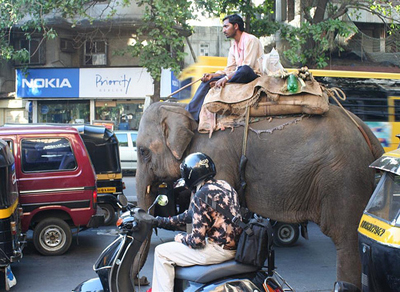


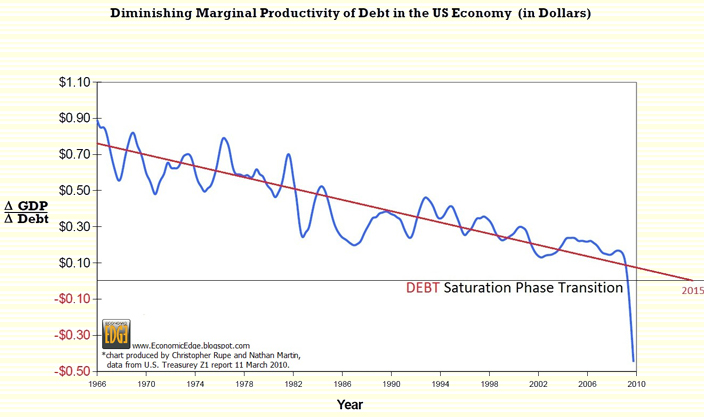
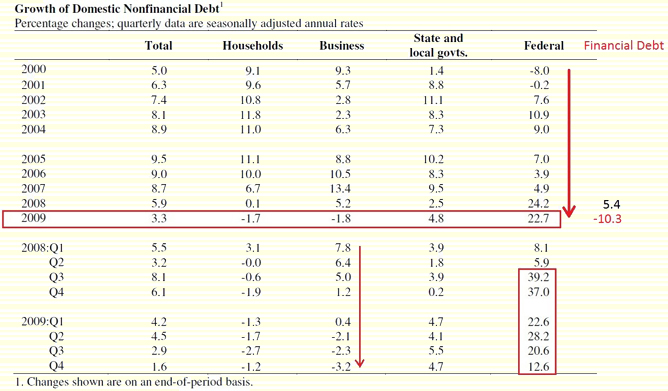
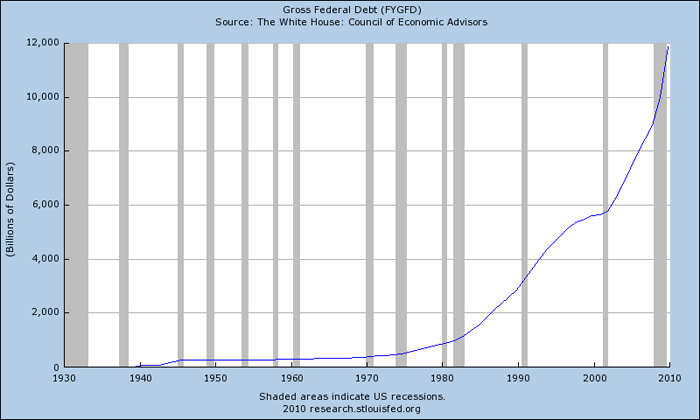
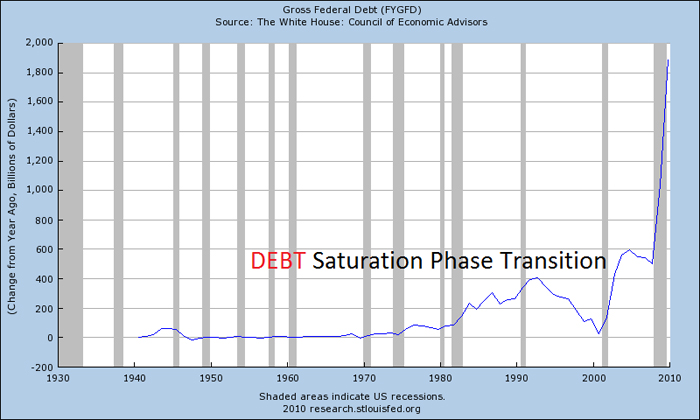
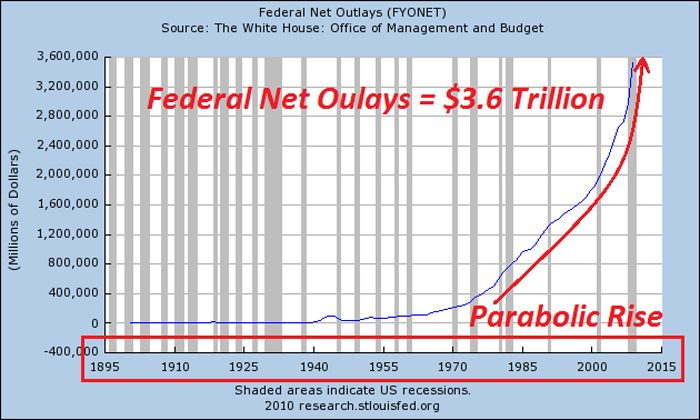
 We will have to resist the temptation to fold in on ourselves and to ignore the cruelty outside our door.
Aleksandr Herzen, speaking a century ago to a group of anarchists about how to overthrow the czar, reminded his listeners that it was not their job to save a dying system but to replace it: “We think we are the doctors. We are the disease.” All resistance must recognize that the body politic and global capitalism are dead. We should stop wasting energy trying to reform or appeal to it. This does not mean the end of resistance, but it does mean very different forms of resistance. It means turning our energies toward building sustainable communities to weather the coming crisis, since we will be unable to survive and resist without a cooperative effort.
We will have to resist the temptation to fold in on ourselves and to ignore the cruelty outside our door.
Aleksandr Herzen, speaking a century ago to a group of anarchists about how to overthrow the czar, reminded his listeners that it was not their job to save a dying system but to replace it: “We think we are the doctors. We are the disease.” All resistance must recognize that the body politic and global capitalism are dead. We should stop wasting energy trying to reform or appeal to it. This does not mean the end of resistance, but it does mean very different forms of resistance. It means turning our energies toward building sustainable communities to weather the coming crisis, since we will be unable to survive and resist without a cooperative effort.
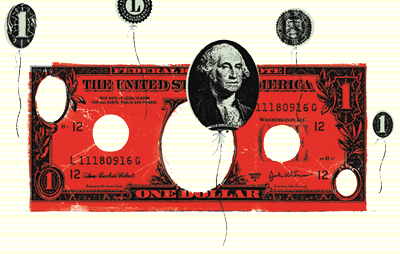 Am I crazy, or is the commentariat ignoring our biggest economic threat?
Am I crazy, or is the commentariat ignoring our biggest economic threat?

 DI EDUARDO ZARELLI
ilribelle.com
Dalla dipendenza energetica alla sostenibilità delle comunità locali: moneta propria al riparo dalla inflazione, ma soprattutto un nuovo olistico sistema di vita. Si può fare.
Transition è un movimento culturale nato in Inghilterra dalle intuizioni e dal lavoro di Rob Hopkins, ora apprezzabile anche dai lettori italiani (Manuale Pratico della Transizione, Arianna Editrice). Tutto avviene quasi per caso nel 2003. In quel periodo Hopkins insegnava a Kinsale, in Irlanda e con i suoi studenti creò il Kinsale Energy Descent Plan: un progetto strategico che indicava come la piccola città avrebbe dovuto riorganizzare la propria esistenza in un mondo in cui il petrolio non fosse stato più economico e ampiamente disponibile. Voleva essere un’esercitazione scolastica, ma quasi subito ci si rese conto del potenziale rivoluzionario di quella iniziativa. Quello era il seme della “Transizione”, il progetto consapevole del passaggio dallo scenario attuale a quello del prossimo futuro.
“I progetti di Transizione mirano a creare comunità libere dalla dipendenza dal petrolio e fortemente resilienti attraverso la ripianificazione energetica e la rilocalizzazione delle risorse di base comunitarie...”
“Pensare globalmente, agire localmente”: in questo semplice slogan si possono riassumere l’obiettivo e il modus operandi del movimento delle “Città in Transizione”. Una filosofia che ora si sta diffondendo anche da noi in ambito locale, dei piccoli e virtuosi comuni della variegata e propositiva provincia italiana, dopo che Hopkins ha fatto della cittadina di Totnes, in Gran Bretagna, l’esempio più famoso di questo movimento. Questo villaggio di 8.500 abitanti nel sud-ovest dell’Inghilterra è stato da subito terreno fertile per le idee della transizione. Partendo da una presa di coscienza dei problemi che ci affliggono su scala planetaria – il cambiamento climatico, la futura penuria di fonti di energia non rinnovabili, la questione dello sfruttamento delle risorse idriche – Hopkins e i suoi sono riusciti a coinvolgere una piccola comunità che ha iniziato a compiere la sua "rivoluzione" nel nome dell’autosufficienza. L’obiettivo è che produzione, distribuzione e consumo (di energia, di acqua e di cibo, principalmente) diventino il più possibile locali, indipendenti da fattori esterni. E così via libera a progetti riguardanti l’uso di fonti energetiche rinnovabili, farmer’s market, spesa a chilometro zero, coltivazione di giardini e orti comuni, mobilità sostenibile. L’idea forte è stata quella di introdurre una valuta locale complementare, la “sterlina di Totnes”, cambiata alla pari con la sterlina del Regno Unito. Questa moneta – spendibile nella settantina di negozi associati al movimento – incentiva l’acquisto di prodotti locali, cosa che determina una diminuzione delle emissioni di anidride carbonica dovute al trasporto e un effettivo sostegno alle imprese e all’occupazione degli abitanti del posto. Ma sarebbe riduttivo concentrarsi sulla autosufficienza “monetaria”: infatti, uno dei pilastri dell’economia di Totnes viene dallo scambio e dalla condivisione di cose molto concrete come ad esempio, risorse o materiali inutilizzati da ditte e imprese. Chi ha manodopera inutilizzata, materiali che si accumulano, spazi vuoti in immobili o mezzi di trasporto, è incentivato a condividere tutto ciò con altre imprese che ne hanno bisogno, secondo il Business Resource Exchange Project. Chi possiede un orto-giardino che non riesce a curare per mancanza di tempo o capacità, è invitato a condividerlo con chi invece può coltivarlo, nell’ambito del Garden Share Project. Con due progetti chiamati The Great Re-skilling (recuperare abilità perdute) e Transition Tales (racconto di esperienze) si possono condividere conoscenze e saperi stimolando spontaneamente relazioni di vicinato e reciprocità sociale.
Raccontata in questo modo Totnes può apparire come un piccolo paesino irenico e decontestualizzato, che ha attuato la sua piccola svolta “verde” proprio in virtù del suo essere irrilevante, circondato da fertili campagne e abitato da una popolazione istruita, ricettiva ed economicamente agiata. Ma è possibile “pensare globalmente e agire localmente” in contesti in cui le politiche ecologiche non sembrano essere il problema più pressante? Il movimento delle Transition Towns può sopravvivere nei sobborghi delle metropoli, nelle aree ad alta densità abitativa, nei sobborghi periferici “difficili” o semplicemente nei tessuti urbani occidentali?
DI EDUARDO ZARELLI
ilribelle.com
Dalla dipendenza energetica alla sostenibilità delle comunità locali: moneta propria al riparo dalla inflazione, ma soprattutto un nuovo olistico sistema di vita. Si può fare.
Transition è un movimento culturale nato in Inghilterra dalle intuizioni e dal lavoro di Rob Hopkins, ora apprezzabile anche dai lettori italiani (Manuale Pratico della Transizione, Arianna Editrice). Tutto avviene quasi per caso nel 2003. In quel periodo Hopkins insegnava a Kinsale, in Irlanda e con i suoi studenti creò il Kinsale Energy Descent Plan: un progetto strategico che indicava come la piccola città avrebbe dovuto riorganizzare la propria esistenza in un mondo in cui il petrolio non fosse stato più economico e ampiamente disponibile. Voleva essere un’esercitazione scolastica, ma quasi subito ci si rese conto del potenziale rivoluzionario di quella iniziativa. Quello era il seme della “Transizione”, il progetto consapevole del passaggio dallo scenario attuale a quello del prossimo futuro.
“I progetti di Transizione mirano a creare comunità libere dalla dipendenza dal petrolio e fortemente resilienti attraverso la ripianificazione energetica e la rilocalizzazione delle risorse di base comunitarie...”
“Pensare globalmente, agire localmente”: in questo semplice slogan si possono riassumere l’obiettivo e il modus operandi del movimento delle “Città in Transizione”. Una filosofia che ora si sta diffondendo anche da noi in ambito locale, dei piccoli e virtuosi comuni della variegata e propositiva provincia italiana, dopo che Hopkins ha fatto della cittadina di Totnes, in Gran Bretagna, l’esempio più famoso di questo movimento. Questo villaggio di 8.500 abitanti nel sud-ovest dell’Inghilterra è stato da subito terreno fertile per le idee della transizione. Partendo da una presa di coscienza dei problemi che ci affliggono su scala planetaria – il cambiamento climatico, la futura penuria di fonti di energia non rinnovabili, la questione dello sfruttamento delle risorse idriche – Hopkins e i suoi sono riusciti a coinvolgere una piccola comunità che ha iniziato a compiere la sua "rivoluzione" nel nome dell’autosufficienza. L’obiettivo è che produzione, distribuzione e consumo (di energia, di acqua e di cibo, principalmente) diventino il più possibile locali, indipendenti da fattori esterni. E così via libera a progetti riguardanti l’uso di fonti energetiche rinnovabili, farmer’s market, spesa a chilometro zero, coltivazione di giardini e orti comuni, mobilità sostenibile. L’idea forte è stata quella di introdurre una valuta locale complementare, la “sterlina di Totnes”, cambiata alla pari con la sterlina del Regno Unito. Questa moneta – spendibile nella settantina di negozi associati al movimento – incentiva l’acquisto di prodotti locali, cosa che determina una diminuzione delle emissioni di anidride carbonica dovute al trasporto e un effettivo sostegno alle imprese e all’occupazione degli abitanti del posto. Ma sarebbe riduttivo concentrarsi sulla autosufficienza “monetaria”: infatti, uno dei pilastri dell’economia di Totnes viene dallo scambio e dalla condivisione di cose molto concrete come ad esempio, risorse o materiali inutilizzati da ditte e imprese. Chi ha manodopera inutilizzata, materiali che si accumulano, spazi vuoti in immobili o mezzi di trasporto, è incentivato a condividere tutto ciò con altre imprese che ne hanno bisogno, secondo il Business Resource Exchange Project. Chi possiede un orto-giardino che non riesce a curare per mancanza di tempo o capacità, è invitato a condividerlo con chi invece può coltivarlo, nell’ambito del Garden Share Project. Con due progetti chiamati The Great Re-skilling (recuperare abilità perdute) e Transition Tales (racconto di esperienze) si possono condividere conoscenze e saperi stimolando spontaneamente relazioni di vicinato e reciprocità sociale.
Raccontata in questo modo Totnes può apparire come un piccolo paesino irenico e decontestualizzato, che ha attuato la sua piccola svolta “verde” proprio in virtù del suo essere irrilevante, circondato da fertili campagne e abitato da una popolazione istruita, ricettiva ed economicamente agiata. Ma è possibile “pensare globalmente e agire localmente” in contesti in cui le politiche ecologiche non sembrano essere il problema più pressante? Il movimento delle Transition Towns può sopravvivere nei sobborghi delle metropoli, nelle aree ad alta densità abitativa, nei sobborghi periferici “difficili” o semplicemente nei tessuti urbani occidentali?


 Oggi sulla home di Repubblica campeggia il
Oggi sulla home di Repubblica campeggia il 

